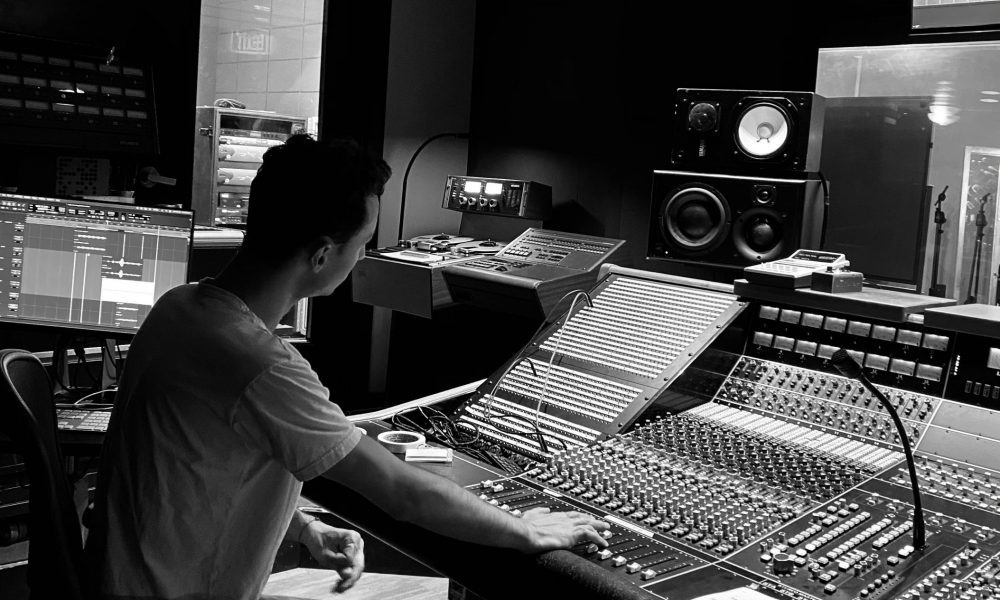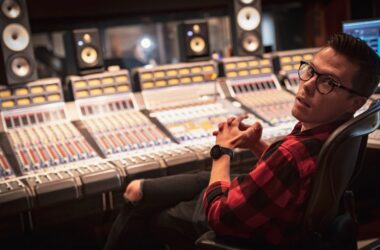Podcasting has surged in popularity over the last decade, with millions of shows and episodes being produced worldwide. While content creators often take center stage with their compelling stories and interviews, the role of a studio engineer is equally important in ensuring high-quality audio production. A skilled studio engineer can make the difference between a raw, unpolished podcast and a professionally produced show that captivates its audience. In this article, we will explore the significance of studio engineers in podcast production, outlining the key tasks they perform, the skills required, and how their involvement contributes to a podcast’s success.
1. The Role of a Studio Engineer in Podcast Production
A studio engineer in podcast production is responsible for the technical aspects of recording, editing, and mixing the audio. Their role ensures that the final product sounds polished, clear, and engaging, with every element of the podcast (from vocals to background music) working in harmony.
Key Responsibilities
- Recording Setup: The engineer ensures that all equipment is properly set up before recording, which includes microphones, audio interfaces, and mixers. They also check that each mic is properly positioned for optimal sound quality, particularly when multiple speakers are involved.
- Sound Quality Control: The engineer ensures that the sound quality is top-notch, which includes controlling room acoustics, microphone choice, and placement. This helps in preventing issues like distortion, noise, or echo that could detract from the podcast’s professionalism.
- Audio Mixing: After the recording, the engineer mixes the various audio tracks, adjusting levels for each speaker to ensure that they are all heard clearly and consistently. They may also adjust the balance between the voice tracks and any music, sound effects, or advertisements included in the show.
- Post-Production Editing: Studio engineers are responsible for cleaning up the audio, removing unwanted noises like ums, ahs, or long pauses, and editing the audio for a smoother, more engaging listening experience.
- Mastering: Once the podcast has been edited, the engineer will typically master the audio to ensure it is balanced and optimized for various platforms. Mastering involves fine-tuning the EQ, adjusting levels, and applying necessary compression to ensure the final product sounds great on any listening device.
2. Enhancing Sound Quality and Consistency
One of the primary roles of a studio engineer is to maintain sound consistency and ensure that the podcast audio quality is consistently professional from episode to episode. Achieving high-quality sound is essential for podcasts to stand out and retain listeners.
A. Ensuring Clear and Crisp Audio
Studio engineers help achieve clear, professional-sounding audio by addressing key factors like microphone placement, room acoustics, and noise control. Without a good setup, even the most compelling podcast content can be marred by poor audio, which can drive listeners away. The engineer ensures that background noise is minimized, and the recording is free from unwanted hums, hisses, or pops.
B. Balancing Audio Levels
When multiple hosts or guests are involved, maintaining a consistent volume level between all speakers is crucial. A studio engineer adjusts levels during the recording to ensure that all voices are at an appropriate volume. In post-production, they may tweak these levels further to prevent any one voice from overwhelming the others. This careful balancing of audio helps maintain a smooth listening experience and ensures that the audience isn’t constantly adjusting their volume.
3. The Art of Podcast Mixing and Editing
Podcast production often involves editing raw recordings, removing mistakes, and enhancing the audio for clarity and impact. Mixing and editing are where the technical expertise of a studio engineer truly shines, transforming a basic recording into a polished show.
A. Cleaning Up Audio
Podcast episodes may feature interruptions, background noises, or moments when the host stumbles over their words. The studio engineer’s role is to clean up the audio, removing these imperfections while maintaining the natural flow of conversation. This can involve cutting out long pauses, correcting verbal missteps, or eliminating any distracting background sounds.
B. Adding Sound Effects and Music
Many podcasts use intro/outro music, sound effects, or background music to create atmosphere or emphasize key points. The studio engineer ensures that these elements are integrated seamlessly into the podcast without overshadowing the hosts’ voices. They also adjust the volume of the music and sound effects to make sure they complement rather than interfere with the spoken content.
C. Maintaining Flow
Podcast editing isn’t just about removing mistakes; it’s about maintaining the narrative flow of the show. A skilled studio engineer can adjust pacing by trimming unnecessary segments and ensuring smooth transitions between topics, which helps keep the listener engaged.
4. The Impact on Audience Engagement
The quality of audio in a podcast plays a significant role in how engaging and immersive the content feels. Poor audio quality, on the other hand, can make even the most interesting topics hard to listen to, causing potential listeners to tune out.
A. Creating a Professional Sound
A well-produced podcast reflects professionalism and can help build credibility for the show and its hosts. A studio engineer’s contribution in polishing the audio ensures that listeners have a pleasant experience, encouraging them to return for future episodes. A podcast that sounds professional is more likely to be shared, recommended, and appreciated by listeners.
B. Accessibility and Consistency
Studio engineers also ensure that podcasts are optimized for various platforms, ensuring that the sound works well on headphones, car speakers, or smart speakers. The consistency of high-quality audio across episodes is key to maintaining audience loyalty and ensuring that listeners don’t feel alienated due to varying sound quality between episodes.
5. Collaboration with Hosts and Producers
A successful podcast is the result of collaboration between various team members, including the hosts, producers, and studio engineers. The engineer often works closely with the podcast host or producer to understand the vision for the show and the desired sound.
A. Creative Input
While the studio engineer is focused on the technical side of production, they can also offer valuable creative input, suggesting ways to improve the audio experience or enhance the show’s structure. They may recommend certain sound design elements or offer feedback on the flow of a particular episode.
B. Managing Technical Aspects
Beyond the recording and editing, the studio engineer may also be responsible for managing technical aspects such as setting up remote recording sessions for guests or troubleshooting technical issues during recording. Their ability to maintain smooth operations ensures that the production runs efficiently, and the hosts and producers can focus on the content itself.
6. Conclusion
In podcast production, the role of a studio engineer cannot be overstated. From ensuring clear and consistent audio quality to mixing and mastering the final product, studio engineers play an integral part in creating a podcast that resonates with listeners. Their technical expertise, attention to detail, and creative input are vital in turning raw recordings into polished, engaging audio content. In a medium where sound quality is everything, the studio engineer is the unsung hero who helps make every episode sound its best.







